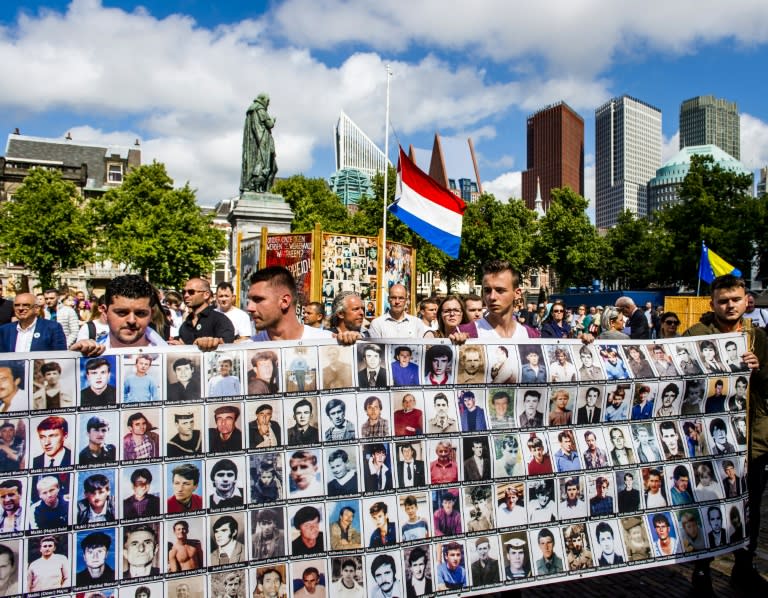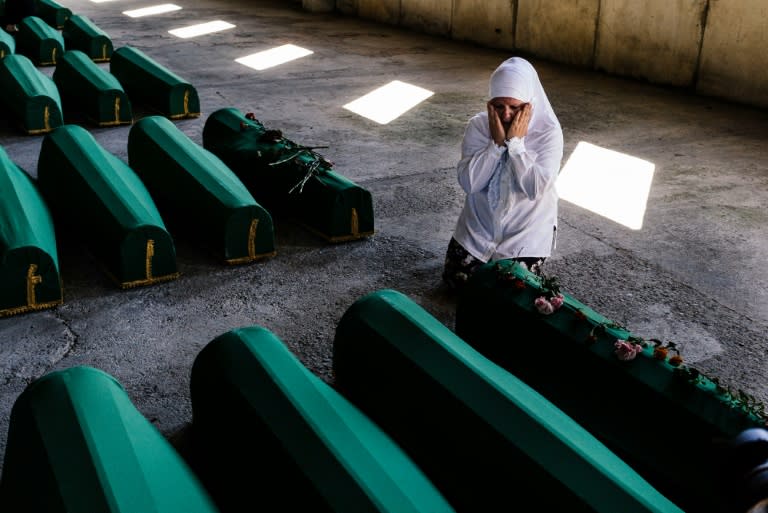Dutch Srebrenica peacekeepers may sue for 'mission impossible'
About 100 former Dutch UN peacekeepers may sue the government for sending them to defend the Bosnian enclave of Srebrenica in 1995, after the defence ministry admitted it had been a mission "impossible," lawyers said Tuesday. "The state sent these soldiers on a mission impossible and then abandoned them," lawyer Michael Ruperti told AFP. "This caused them a lot of damage, physically, psychologically and financially, as well as in their social lives." Europe's worst atrocity since World War II occurred in mid-July 1995, when lightly armed UN Dutch peacekeepers were overrun by Bosnian Serb troops in the supposedly UN-protected "safe haven" of Srebrenica. Almost 8,000 Muslim men and boys were killed and their bodies dumped in mass graves. The wave of killings has been denounced as an act of genocide by the UN court set up to try those behind the abuses of the Balkans wars. And in the Netherlands the events still stir controversy, with questions remaining over the Dutch blue helmets' role. The Dutch troops, known as the "Dutchbat", entrenched in their base, had taken in thousands of refugees from the enclave. But overwhelmed they first shut the gates to new arrivals, and then allowed the Bosnian Serbs to evacuate the refugees. The men and boys were separated and taken in buses to their deaths. The events led to the fall of the government in 2002, and the Netherlands became the first ever country to be held responsible for the acts of its UN peacekeepers when a Dutch court ruled in 2013 that the state was liable for the deaths of over 300 Bosnian men and boys. In June this year, Defence Minister Jeanine Hennis-Plasschaert admitted during a Veterans Day event that the battalion had been sent to Bosnia "without adequate preparation... without the proper means, with little information, to protect a peace that no longer existed." "It was an unrealistic mission, in impossible circumstances," she said. For the lawyer Ruperti, his clients "still find it hard to participate in society." "They have been bad-mouthed for two decades now, and people still ask them today on the football field, and in cafes 'Why didn't you do anything?' "Their reputations as men and as soldiers have suffered because they were abandoned by the Dutch state," Ruperti said, adding he first wanted to meet with the defence ministry before filing a lawsuit. The move comes just after the European Court of Human Rights on Thursday dismissed a claim that Dutch commanders should be prosecuted for failing to prevent the deaths of three victims of the 1995 massacre. The pan-Europe court in Strasbourg "unanimously declared the application inadmissible", in what it called a "final" decision.



